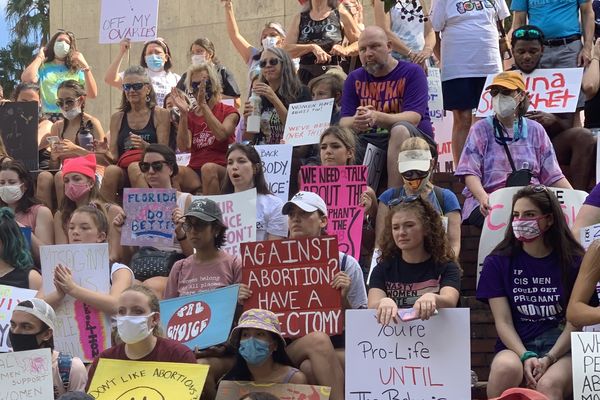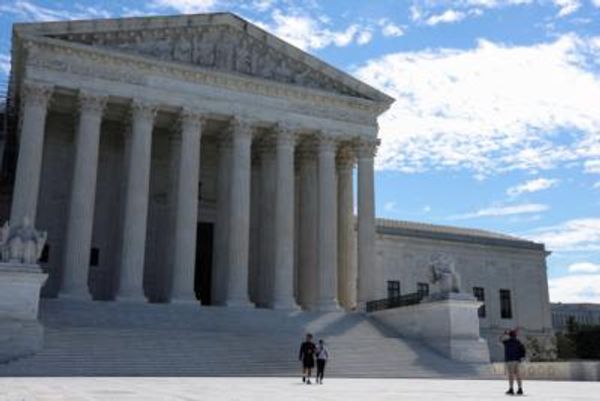
John Margerison told potential investors that the rollout of the National Disability Insurance Scheme would be a goldmine.
“Our objective is to achieve high yield returns,” the vanished Gold Coast businessman wrote in an information memorandum for his disability support company, DJ Health, in 2018.
The document teased at profits of up to 19%, in an industry where most services lose money.
Two years later, when no one had bought into his vision, Margerison found another, highly unusual, way to cash in.
The self-described “serial entrepreneur” broke DJ Health into pieces, separating the company from a registered charity it once owned. He then sold the for-profit company to the non-profit.
When banks declined to fund the purchase, Margerison himself lent the charity, United Disability Care, the money.
That loan, to buy its former parent company, has left the not-for-profit paying Margerison millions of dollars a year from its bottom line. He stands to pocket up to $40m over 10 years.
Financial documents and other information obtained by Guardian Australia suggest the sale price of $19.3m for DJ Health was significantly inflated compared to a prior valuation.
Several disability sector sources, who asked not to be named, have also questioned the valuation, with one describing it as “absurd”.
Internal financial documents show Margerison is being paid about $2m a year in interest – at a rate of 10% per annum – by the charity as part of the 10-year loan arrangement. The repayments amount to about 5% of the charity’s income.
The NDIS generally assumes a 2% profit margin and this year two out of every three businesses in the sector will post a loss.
Federal parliament heard in June that Margerison had left the country and “severed all ties” after being ordered to appear before a parliamentary inquiry that was scrutinising Services Australia and National Disability Insurance Agency contracts.
His longstanding relationship with Stuart Robert, who was Coalition minister for the NDIS from 2019 to 2021, has come under significant scrutiny in parliament. Robert was not involved in DJ Health or United Disability Care.
Merging companies
From early 2017, Margerison bought up a series of small disability service providers, believing that smaller businesses might struggle to implement new systems required for the NDIS, but that a consolidated company could provide significant economies of scale.
One of the businesses Margerison took control of was ACCnet21 – later renamed United Disability Care – a charity based in northern New South Wales. A letter sent to clients advised them the charity had “merged” with Margerison’s for-profit disability company, DJ Health.
In 2018, staff working for DJ Health were actually employed by ACCnet21, with Margerison listed as the charity’s “executive director”, internal documents from the time show.
The documents indicate that in 2018 Margerison valued DJ Health – including ACCnet21 and several other businesses, which cared for more than 400 clients in total – at $28m. The “intangible assets” of the group – the goodwill – were valued at $11.5m.
By the time DJ Health was sold to United Disability Care on 31 January 2020, most of its former subsidiaries were no longer part of the business. Documents show only about 75 disability clients – less than a fifth of the number in 2018 – remained under the DJ Health umbrella.
But the goodwill attributed to DJ Health in the charity’s accounts had more than doubled compared to 2018. United Disability Care’s financial statements indicate it valued the goodwill of DJ Health at $24.5m at the time of purchase.
The following year the charity wrote down the value of the goodwill by $4.3m.
Leaving aside the goodwill, the charity’s tangible assets only grew by $2m in the year of sale. Its revenue increased by 30%, or $9.5m, largely due to increased NDIS grants, but the transaction appears to have had little impact on its bottom line. After a modest $800,000 increase in profit in the year of sale, accounts show the charity lost money in 2020/21 and made a minor profit the following year.
In 2022, United Disability Care’s auditor placed emphasis on the goodwill valuation, including assumptions about future income generation, and said there was an “underlying risk of overstatement of intangible assets”.
$200,000 a month in interest
In its 2020 annual report, five months after the purchase, United Disability Care refers to Margerison as the charity’s “major shareholder” and says his input has been “invaluable”.
Margerison was a director and shareholder of United Disability Care at various times – including both before and after its purchase of DJ Health.
Nine days before the sale, United Disability Care updated its list of shareholders to remove both DJ Health and Margerison, according to documents filed with the corporate regulator. The documents said those changes had occurred more than a year earlier.
A few months after the sale, Margerison became the sole shareholder of United Disability Care.
By that time, internal financial documents show, the charity was paying him almost $200,000 a month in interest from vendor finance loans.
Sylvia Capps, the chief executive officer of UDC, defended the sale as offering value for money.
“John had provided unsecured vendor finance for the purchase, in an environment when banks did not understand the NDIS business model, and conventional [finance] was difficult to secure,” she said.
“The NDIS is a highly competitive environment and an organisation that had paid too much for another business could not afford to provide the outstanding client service that UDC provides. The transaction was assessed and endorsed by an independent valuer.
“The best interests of our clients are our top priority. Having access to the credit facility at better-than-commercial terms allows us to support more clients, and we believe the loyalty rate we have achieved over many years demonstrates the quality of our service.”
There is no suggestion United Disability Care or Capps were aware of the 2018 valuation of DJ Health.
A complex fee structure
In addition to the ongoing loan repayments, Margerison also owns a private company that is embedded with United Disability Care, and which receives about $4.5m a year in “fees” from the charity, including a portion of the NDIS entitlements of about 570 disability clients.
The business, Corporate Link Services, has only one client. It is the employer of operations staff, including IT, human resources and finance, who do work for the charity.
In response to questions about the arrangement, Capps said Corporate Link Services “is a specialist provider of corporate services”.
“It is very common practice, particularly in the community sector, to engage experts in this area so a care organisation such as ours can focus on our primary objective – providing outstanding support to our clients.
She said United Disability Care paid Corporate Link Services about 9.33% of its income, and that this was “clearly superior” to the 12% allocated for administration costs under the NDIS cost model.
Emails obtained by Guardian Australia show Capps signing off messages in June as the CEO of Corporate Link Services.
After being contacted by Guardian Australia and asked about links between the companies, Capps arranged for her name and photograph to be removed from the Corporate Link Services website, which listed her as the CEO, saying this was an error.
“I vehemently reject your claim that I manage both organisations,” she said, in response to questions.
‘“I simply restate that I am employed by United Disability Care and left Corporate Link Services in 2019. Naturally the two organisations work closely together, and as a supplier the CLS team takes instruction from UDC leadership – its client.
“In relation to value for clients, the NDIS is a highly competitive space, and clients are empowered to choose their own service providers. I am confident that UDC is meeting – and exceeding – the service and value expectations of our clients, because they are highly loyal in their choice to remain with us.
“It’s disappointing UDC has been dragged into what is clearly a political witch-hunt that has nothing to do with how we provide services to our clients, and everything to do with players in Canberra settling old scores. Our focus is, and has always been, on providing the highest quality of services for our clients.”
Margerison and his lawyer did not respond to a request for comment.
Corporate Link Services is owned by a parent company, United Marketing, which in turn is owned by Margerison.
Parliament heard allegations in June that United Marketing was proposed to take a shareholding in lobbying firm Synergy 360, run by businessman David Milo, as a vehicle “to facilitate the flow of funds to Robert”.
Robert has denied those claims “in the strongest possible terms”.







